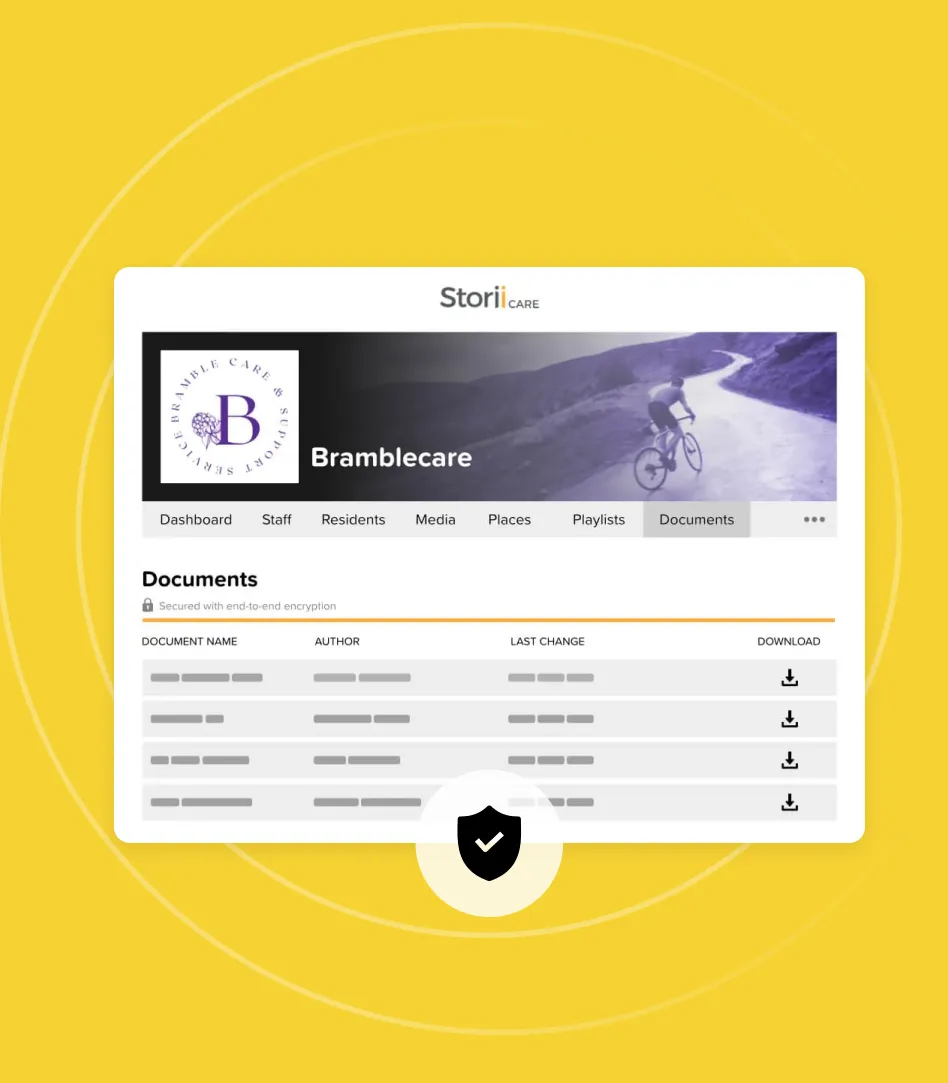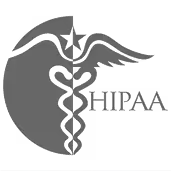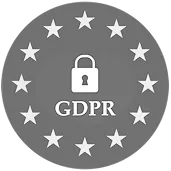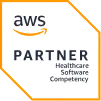La transparencia es esencial en la industria del cuidado de la salud actual. Las familias esperan una comunicación clara y una prueba de la calidad de la atención. La documentación digital cierra las brechas de comunicación y garantiza la responsabilidad y la confianza al reemplazar los sistemas obsoletos basados en papel. Estas son 10 formas en las que mejora la transparencia en los servicios de atención.
1. Actualizaciones en tiempo real para las familias
Uno de los beneficios más inmediatos de la documentación digital es la capacidad de proporcionar actualizaciones en tiempo real. Las familias suelen preocuparse por la atención que reciben sus seres queridos, especialmente cuando no pueden visitarlos con frecuencia. Las plataformas digitales permiten a los cuidadores registrar las actividades diarias, las comidas, la administración de medicamentos y el bienestar general en tiempo real.
Por ejemplo, con StoriiCare, las familias pueden acceder a las actualizaciones a través de un portal en línea seguro. Pueden ver exactamente en qué actividades participaron sus seres queridos ese día o si los medicamentos se administraron según lo programado. Este nivel de transparencia alivia las preocupaciones y genera confianza, ya que las familias se mantienen informadas sin necesidad de llamadas telefónicas o visitas constantes.
2. Comunicación más clara entre los equipos
En la prestación de cuidados, la comunicación fluida entre los miembros del equipo es fundamental para brindar una atención constante. Los problemas de comunicación suelen surgir cuando el personal se basa en actualizaciones verbales o en notas de papel dispersas. La documentación digital centraliza la información y crea una única fuente veraz a la que pueden acceder todos los miembros del equipo.
Esta claridad garantiza que el personal pueda entender rápidamente las necesidades, preferencias y actividades recientes de un cliente, incluso si es nuevo o está reemplazando su puesto. Al reducir los malentendidos, las herramientas digitales mejoran el trabajo en equipo y garantizan que los planes de atención se ejecuten según lo previsto, sin dejar lugar a ambigüedades.
3. Registros detallados de la atención prestada
Las familias suelen querer pruebas detalladas de que sus seres queridos reciben el nivel de atención que esperan. Los registros en papel tradicionales son propensos a errores, inconsistencias o incluso a pérdidas. La documentación digital resuelve este problema al crear registros completos y con fecha y hora de todas las actividades relacionadas con la atención.
Cada tarea, ya sea ayudar con la higiene, administrar medicamentos u organizar actividades sociales, se registra digitalmente. Esto no solo brinda tranquilidad a las familias, sino que también sirve como un recurso vital para los proveedores de atención durante las inspecciones o las disputas.
4. Cumplimiento más fácil de las regulaciones
Los proveedores de atención médica operan en una industria altamente regulada. El cumplimiento de las normas locales y nacionales es crucial, no solo para mantener las licencias, sino también para garantizar la seguridad y el bienestar de las personas a su cargo. La documentación digital simplifica el cumplimiento al organizar y almacenar los registros de forma sistemática.
Los registros de auditoría, que están integrados en la mayoría de los sistemas digitales, permiten a los proveedores rastrear fácilmente lo que se ha hecho, cuándo y quién lo ha hecho. Por ejemplo, en StoriiCare, los proveedores de atención médica pueden generar informes al instante, que muestren el cumplimiento de los cronogramas de medicación o los registros de actividad. Esto minimiza el riesgo de multas o sanciones y demuestra el compromiso de cumplir con las normas reglamentarias.
5. Los planes de atención personalizados de un vistazo
No hay dos personas bajo tutela que requieran exactamente el mismo apoyo. La documentación digital permite a los equipos de atención crear y actualizar planes de atención individualizados, garantizando que cada persona reciba la atención y los servicios que necesita.
Estos planes son fácilmente accesibles dentro del sistema, lo que permite a los cuidadores consultar rápidamente sus preferencias, afecciones médicas o requisitos especiales. Si las necesidades de un cliente cambian, se pueden realizar actualizaciones en tiempo real, lo que garantiza que los planes de atención se mantengan actualizados y relevantes. Las familias aprecian esta personalización, ya que saben que sus seres queridos son tratados como individuos y no como un residente más.
6. Mejora de la supervisión y la rendición de cuentas
Uno de los mayores desafíos en los servicios de atención es garantizar que cada tarea se complete a tiempo y de acuerdo con los estándares. Los sistemas digitales facilitan a los supervisores la supervisión de las actividades y garantizan la rendición de cuentas.
Por ejemplo, los cuidadores pueden marcar las tareas como finalizadas en el sistema, lo que los administradores pueden ver en tiempo real. Si se omite una tarea, las alertas pueden notificárselo al equipo de inmediato. Esta transparencia garantiza que nada pase desapercibido y permite a los gerentes abordar cualquier problema con prontitud.
Además, el personal sabe que se está realizando un seguimiento de su trabajo, lo que los motiva a mantenerse diligentes y cumplir con las mejores prácticas. Esta responsabilidad conduce, en última instancia, a una atención de mayor calidad.
7. Registros seguros y accesibles
Los registros en papel no solo son engorrosos, sino que también son vulnerables a daños, pérdidas y acceso no autorizado. La documentación digital resuelve estos problemas al almacenar los registros de forma segura en sistemas basados en la nube.
Los controles de acceso garantizan que solo el personal autorizado pueda ver o editar los registros, lo que protege la información confidencial. Al mismo tiempo, las familias pueden tener acceso a ciertas secciones del sistema, como las actualizaciones diarias o los planes de cuidado, lo que garantiza la transparencia y, al mismo tiempo, mantiene la privacidad.
Además, los registros digitales se pueden buscar fácilmente. Si una familia o un organismo regulador solicitan información específica, se puede recuperar en segundos, lo que ahorra tiempo y demuestra eficiencia.
8. Facilita los bucles de retroalimentación
La transparencia no consiste solo en compartir información, sino también en crear canales para el diálogo. Muchas plataformas digitales incluyen funciones que permiten a las familias, el personal y los residentes enviar sus comentarios directamente desde el sistema.
Por ejemplo, un miembro de la familia que se dé cuenta de que se ha omitido una actualización puede señalarla al equipo de atención médica, quien puede solucionar el problema de inmediato. Del mismo modo, los residentes pueden dejar comentarios sobre las actividades o las comidas, lo que ayuda a los proveedores de atención a mejorar sus servicios. Estos circuitos de retroalimentación fomentan una cultura de mejora continua y muestran a las familias que valoramos sus comentarios.
9. Asignación de recursos mejorada
La transparencia no solo tiene que ver con la comunicación, sino también con la eficiencia. Al analizar los registros digitales, los proveedores de atención médica pueden identificar patrones y asignar los recursos de manera más eficaz.
Por ejemplo, si los datos muestran que ciertas actividades son populares de manera constante, los equipos de atención pueden centrarse en ampliarlas. Alternativamente, si una tarea en particular lleva más tiempo del esperado, los niveles de personal se pueden ajustar en consecuencia.
Este enfoque proactivo garantiza que los recursos se utilicen donde más se necesitan, lo que mejora la calidad general de la atención y asegura a las familias que no se pasa por alto a nadie.
10. Generar confianza a través de la transparencia
En última instancia, el beneficio más importante de la documentación digital es la confianza que genera entre los proveedores de atención y las familias. Cuando las familias pueden ver exactamente lo que está sucediendo, ya sea a través de actualizaciones en tiempo real, registros detallados o canales de comentarios abiertos, se sienten más seguras de la atención que se les brinda.
La transparencia también fortalece la relación entre los cuidadores y los supervisores. Con registros claros y medidas de rendición de cuentas, todos saben que están trabajando para lograr el mismo objetivo: brindar la mejor atención posible.
Por qué StoriiCare es líder en el cuidado transparente
StoriiCare está a la vanguardia de la transformación digital de los servicios de atención. Su plataforma intuitiva permite a los proveedores de atención médica documentar, comunicarse y colaborar con una transparencia sin igual. Las características clave incluyen:
- Actualizaciones familiares en tiempo real: Mantenga a las familias informadas con registros de actividades, resúmenes de comidas y más.
- Planes de cuidado personalizables: Adapte la atención a las necesidades y preferencias únicas de cada individuo.
- Herramientas de cumplimiento: Genere informes listos para la auditoría con facilidad.
- Integración de comentarios: Permita la comunicación abierta entre las familias, los residentes y los equipos de atención.
Al adoptar StoriiCare, los proveedores de atención pueden cerrar la brecha entre los cuidadores y las familias, fomentar la confianza y garantizar que todos estén en sintonía.
Conclusión
La industria del cuidado está evolucionando y la transparencia ya no es un lujo, es una necesidad. La documentación digital ofrece a los proveedores de atención las herramientas que necesitan para generar confianza, mejorar la eficiencia y cumplir con las expectativas de las familias y los reguladores actuales.
Con sistemas como StoriiCare, los servicios de atención pueden ir más allá de los métodos tradicionales y abrazar un futuro en el que la transparencia no sea solo un objetivo sino un estándar. Al priorizar la documentación digital, los proveedores pueden crear entornos de confianza, responsabilidad y excelencia, garantizando la tranquilidad de las familias y una atención de alta calidad para los residentes.
Descubra cómo StoriiCare puede transformar su servicio de atención hoy mismo.




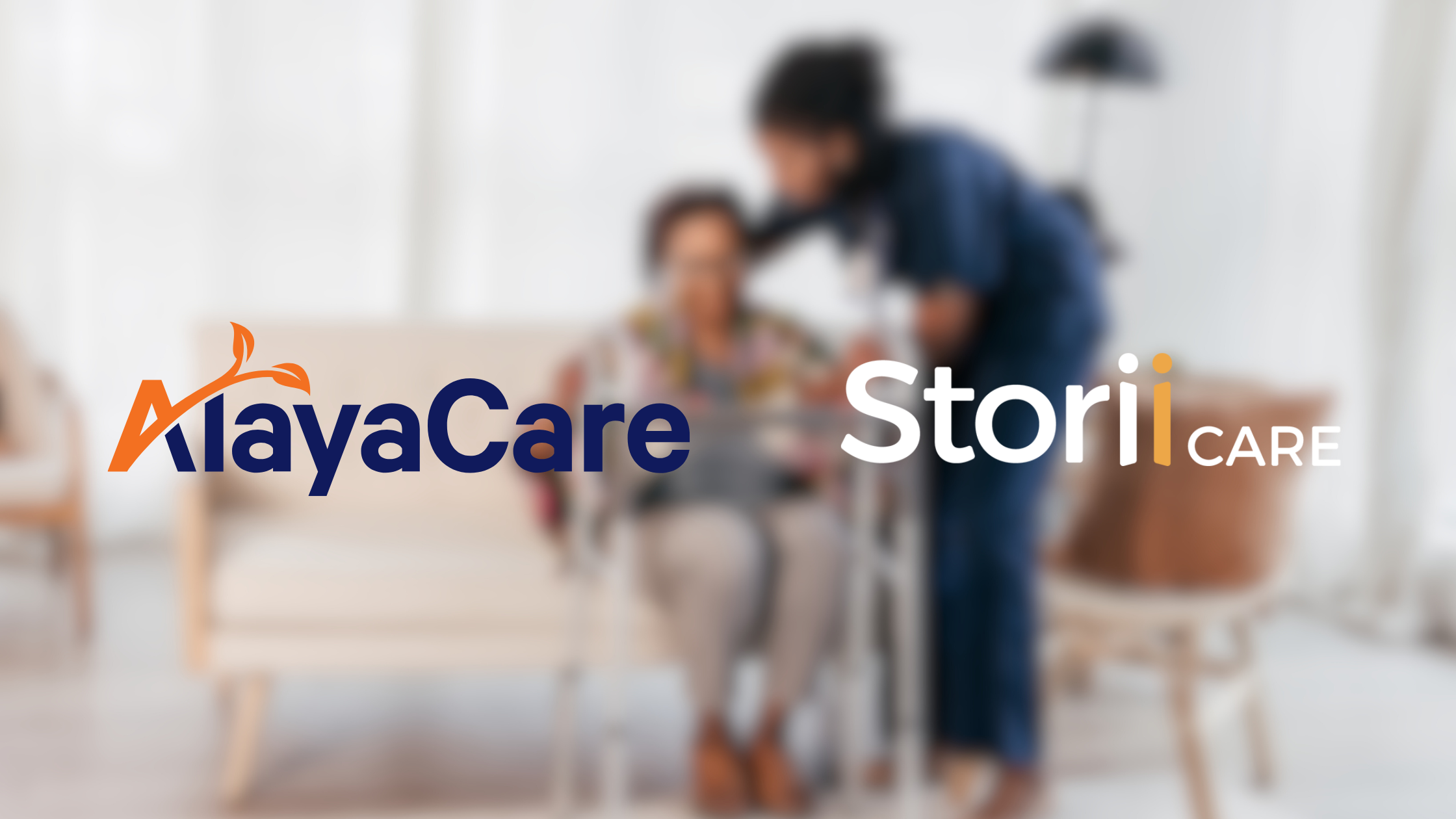
.png)
.png)
